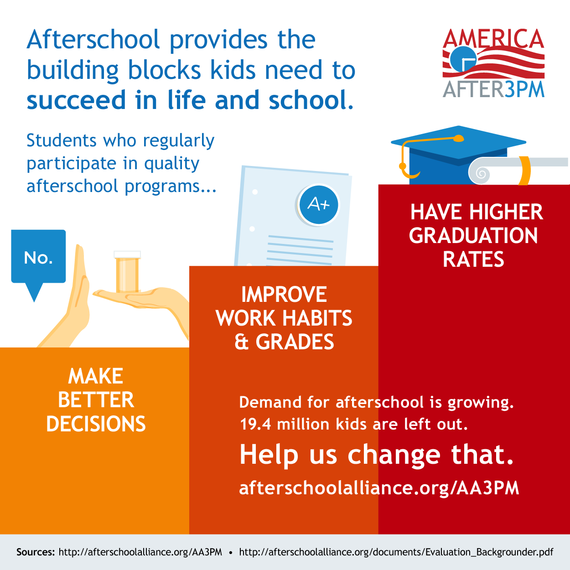Judging from the substance and tenor of the policy debate over education in the United States, you might think that everything children need to learn can be assessed and summed up with test scores and grades.
Parents and educators know better. They see the much broader range of children's development and learning as they walk that long path from birth to young adulthood and beyond. They see the ways infants and toddlers interact with other children and with adults -- the ways they react to what happens around them, memorize storybooks, express emotion as they sing songs, mimic their parents' gestures, and repeat words and phrases they hear. They see the ways children react to encouragement as they learn to walk or ride a bike, the ways they engage a friend or charm a grandparent. Later, they discover their children picking up language and information from their friends and other adults, and going on to develop a rich variety of skills and interests.
More than that, they see their children develop personalities and attitudes, sometimes with their parents' guidance in evidence, sometimes not. Along the way, children develop not just knowledge but abilities, traits and attitudes that can last a lifetime -- things like persistence, resilience, inquisitiveness, conscientiousness, empathy, teamwork, the capacity to relate to other children and to adults, and much more.
Almost none of that is captured with letter grades or test scores, but it all feeds into how well children are able to navigate and succeed in the world around them, as students, citizens, employees and, eventually, as parents themselves.
Still, you don't find many courses in resilience, and there's no department of persistence across the hall from the history department at your community's high schools. But somehow, kids develop those traits.
But how does this social and emotional learning happen? And how can we shape that process to make sure it reaches all our children?
Those questions have been the subject of considerable research and discussion lately, with The Wallace Foundation making particularly compelling contributions. After examining decades of research on the topic, the experts they engaged sketched out a "Foundations for Young Adult Success" -- a developmental framework that allows "all children [to] grow up to reach their full potential, regardless of which side of the economic divide they were born." As they see it, "opportunities for rich and varied developmental experiences through K-12 schooling and informal education are largely determined by family resources; to address these inequities...means integrating afterschool providers' lens of youth development with educators' knowledge of learning theory with families' deep understanding of the unique needs and circumstances of their children. By drawing from the knowledge, approaches, and experience of many different adults from many different settings, we can give the next generation of young people the opportunities they need to meet their full potential."
What these researchers found is borne out in the experiences of children, parents, and afterschool providers on a daily basis. Children in afterschool programs may not be up to date on the research, but they know that what happens after 3 p.m. is very different than what happens during the regular school day. Their relationships with adults are different; the activities are different; the subjects they learn about are different.
Parents understand that, too. They know that for some kids, afterschool programs provide a chance to take on challenges -- daunting ones, sometimes, like building robots or mastering an instrument -- and overcome it through hard work, perseverance, and the self-confidence that grows as they reach milestones along the way.
Afterschool providers see it, as well. For them, it's often akin to helping a flower grow and bloom -- tilling the soil, creating the conditions for it to take root, and protecting it as it sprouts and comes into bloom.
The work that after-school programs do to help kids achieve academically is vital, and it's one way policymakers and others should measure their success. But it must not be the only measure. The research team engaged by The Wallace Foundation concludes, "Policies that put too great an emphasis on content knowledge and standardized tests create incentives for practitioners to see the teaching of content knowledge as the sole outcome of interest.... The other foundational components not only facilitate engagement and learning of content knowledge, but they are also important developmental outcomes in and of themselves."
Check out The Wallace Foundation's research here and here. And take a look at some new infographics from the Afterschool Alliance.

